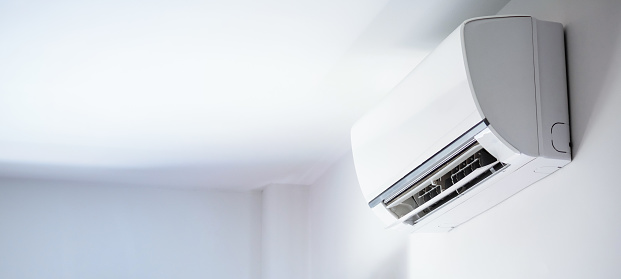
As in the commercial sector, Gas Safety, Gas Safety Certificate are mandatory in our residential houses too. Unfortunately, not all of us give importance to gas safety. That is why many gas accidents occur and cause massive disruptions. Gas accidents can be fatal or may result in lifelong disorders.
Therefore, every homeowner should be aware of the vital steps for gas safety. This article will teach you these tips and a lot more. Keep reading!
1- Always Check the Gas Safety Certificate
There are several types of gas certificates. If we talk about the residential certificates, you will obtain a gas safety certificate cp12. Let us first see what this certificate is about?
What is a Gas Safety Certificate?
It is a document to ensure that the house has met all safety regulations for gas safety. If you are a tenant, your landlord will provide this certificate before the agreement. Getting a gas certificate is a legal requirement and no one can ignore it.
How to Get a Gas Certificate?
If you are a landlord, you should obtain this certificate. All you need is to search for a reliable gas-safe company in your area. Ask about getting a certificate for your house and they will send a gas engineer to your home.
But, make sure that the company, as well as the engineer, is registered in the list of the Gas Safe Register. You can visit the site and check the name on the list. Only qualified and experienced gas professionals get this registration.
If the engineer is registered, call him for a has inspection. After a detailed analysis of your house, the expert will give some recommendations. Your appliances might need a repair service. Some gas companies also provide this service.
Cost of a Gas Certificate
The cost of this certificate varies according to your area. However, you need to bear the cost after every 12 months. The cost also depends on the number of gas appliances in your house. In the UK, the cost ranges from £60 – to £90.
2- Invest in Carbon Monoxide Alarms
Carbon monoxide is an odourless gas and is widely known as a silent killer. Its leakage is harmful and can be fatal too. In most cases, people do not know about the leakage issue and its dangers. Sometimes, there are no symptoms and we fail to determine if there is any leakage in the house.
Therefore, safety detectors are useful. Several types of these alarms are present in the market. You can buy the one that suits your needs. Some common types include:
Plug-in Alarms – they need to be plugged in just like any other electric device
Sealed Battery Alarms – they come with a battery of 10 years warranty
Combination Alarms – they protect against carbon monoxide and smoke
Carbon monoxide Leakage Symptoms
At times, some symptoms may arise due to gas leakage. Knowing these symptoms will let you take timely action. They are:
- White clouds
- Increase in gas bills
- Hissing sound
- Rotten egg smell
- Pale skin and breathing issues
- Drowsiness
3- Check Ventilation
Make sure to put all gas appliances in a room with proper ventilation. Keep checking the air vents as blocked vents are one of the reasons for several issues. Sometimes dust and dirt can block the vents.
Your gas engineer might clean the vents during the service. But you also need to maintain cleanliness. Also, refrain from putting plastic and furniture items near the gas appliances. All your rooms should be ventilated. This practice can save you from sudden gas leakage.
4- Know the Location of the Shut Off Valve
Many homeowners have no idea where the shut-off valve is located. They think that a gas certificate is enough for security. It is a great misconception. Even if you have a valid certificate and alarms in your house, knowing the shut-off valve is important.
Ask the gas engineer to guide you about the shut-off valve. All adults in the house should know where the valve is present. Another great idea is to put a mark to know where to turn the valve for closing the gas supply.
In case of danger, many of us get into a panic. These small steps can help us take immediate action.
5- Create an Emergency Plan
Many of us are not habitual in making an emergency plan. But those who have experienced gas accidents and other life-threatening dangers can understand its importance.
During an emergency getting into panic is normal. However, if we have a plan of action in our minds, we can successfully deal with the tough situation. Here are some core points for an emergency plan:
- Tell children to reach the main exit door of the house
- Give one duty to each adult
- Duties will include opening of the windows, shutting off the valve, and calling on the helpline
- Evacuate the house but do not delay in calling the emergency handlers
6- Use Gas Appliances with Care
Gas accidents can also happen due to the misuse of gas appliances. Be it your boiler, oven, or anything else, make sure to keep a check on its maintenance.
Call the expert even if the fault is minor. It will help you save some bucks as the new appliance is always heavy on the pocket. Additionally, go through the guidelines in the manual and use the appliance accordingly.
7- Never do the DIY Tricks
Even if the gas is leaking, never go for any DIY tricks. You may find a lot of tricks on the internet, but they can put your life in danger. Therefore, always call a gas expert and shut off the main valve in case of gas leakage.
Final Words
In short, gas leakage is a serious issue. Life is precious and even a minor mistake can put our lives in danger. Before it’s too late, take steps to stay safe at home. Create a contingency plan, purchase alarms, and get a gas certificate.
Also, know the location of the shut-off valve and educate every family member about the dangers. Adopting these steps will help you take immediate action during emergencies.
Stay safe!





